Sustainable Destinations
Sustainable destinations are becoming increasingly popular among travelers who are mindful of their environmental impact. At our platform, we share this commitment and strive to inspire our users to explore these thoughtful travel options.
Eco tourism destinations and our sustainable partners

Brazil
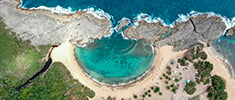
Puerto Rico
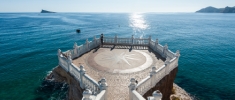
Region of Valencia

Morocco

Panama

Madeira
Discover the great biodiversity of Brazil
Brazil hosts some of the most important ecosystems on our planet, such as the Amazon, the Atlantic Forest, and the Pantanal. A vast territory of lush nature that harbors a large portion of the world's biodiversity. In 2023, the country was chosen as the 'First Ecotourism Destination in the World' by Forbes and the 'First Adventure Destination in the World' by USNews, and in 2021, it ranked third in natural resources according to the World Economic Forum.

Discover areas awarded for their efforts

The Pantanal
A Biodiversity Treasure
The Pantanal is a blend of lush nature, rich biodiversity, and distinctive cultural identity, with traditions and influences from various peoples that have turned this land into an ecological sanctuary. Considered a paradise for wildlife observation, there are several experiences that allow one to contemplate its biodiversity. Whether by boat, safari vehicles, horseback riding among herds, or on foot, it is possible to enjoy the impressive landscapes of the Pantanal plains and its rich fauna, which includes the jaguar and one of the greatest bird diversities in the world.

Manaus
A City in the Heart of the Amazon
Manaus is an ideal destination for visitors seeking to be in touch with nature and serves as a gateway to the Amazon. Bathed by the Amazon River, the city offers various options of freshwater beaches and is known for the famous natural phenomenon of the meeting of the waters, an unforgettable experience.
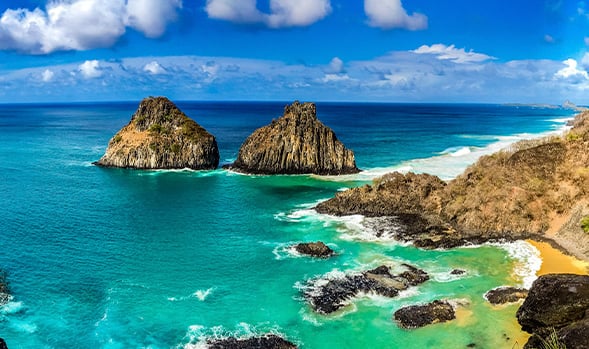
Fernando de Noronha Archipelago
One of Brazil's Top Tourist Destinations
Comprising 21 islands, the region hosts a rich natural diversity and experiences with local communities. It's perfect for those seeking experiences in bays of crystal-clear waters and is home to some of the most beautiful beaches in the world. Additionally, the island is ideal for those looking for ecotourism activities and adventures.
Brazil
Brazil
Actively protect this Caribbean paradise
Respect the environment while enjoying paradise. If you are concerned about the environmental, social, or economic aspects of travel, choosing a lighter way to visit a destination can put your mind at ease. For example, taking the less traveled path and leaving only footprints and love is the best way to connect with Puerto Rico. And, by traveling to the heart and soul of the Caribbean, you don't have to give up a heavenly vacation to become a more conscious traveler.

Explore a sustainable destination: Puerto Rico
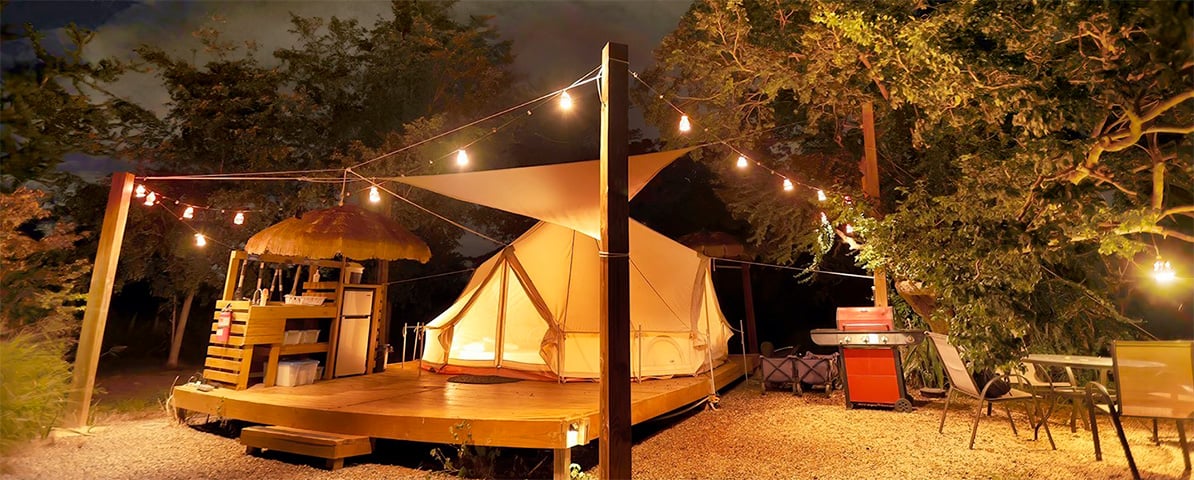
Discover what Puerto Rico has to offer
Low-impact activities will leave you breathless.
When planning your getaway, choose certified eco-friendly locations for all your activities. From luxurious hotels like the St. Regis Bahia Beach Resort to eco-friendly properties like the Dorado Beach, a Ritz-Carlton Reserve, cozy inns like Turtle Bay Inn, boutique bed and breakfasts like Casa Sol, solar-powered lofts like Hix Island House, and immersive glamping experiences at Pitahaya Glamping, among others; there are many accommodation options to suit your eco-friendly style.
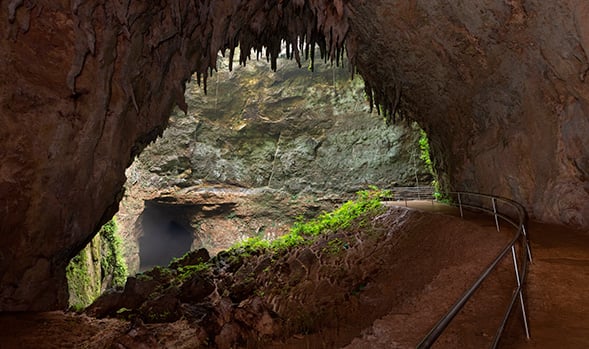
Camuy River Caverns
Environmental preservation intertwines with natural wonder.
Known for its vast caves and underground rivers, the park is home to one of the most extensive cave systems in the Western Hemisphere. Visitors can explore impressive rock formations, admire stalactites and stalagmites, and listen to the murmur of the underground river flowing through the caverns.
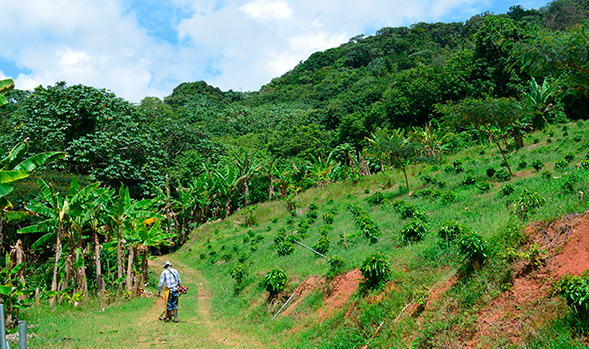
Choose Your Experience
Immerse yourself in the culture and traditions of the land.
The island's climate, topography, and hydrology make it an ideal place to immerse yourself in agriculture. The agrodiversity offers the opportunity to experience and taste different fruits, local products, and typical cuisine, learn about the process behind each food, and live the culture and traditions of the island.
A paradise to be explore
In this paradise you can also learn about community models of socioeconomic transformation based on the green and solidarity economy. Explore the forests, reserves, history, culture and ecological value through the perspective of the Boricuas. And there is the Blue Flag Program, an international recognition awarded to beaches, marinas and tourist boats that meet strict criteria established by the program. They stand out for their cleanliness, safety, information centers and proper environmental management.
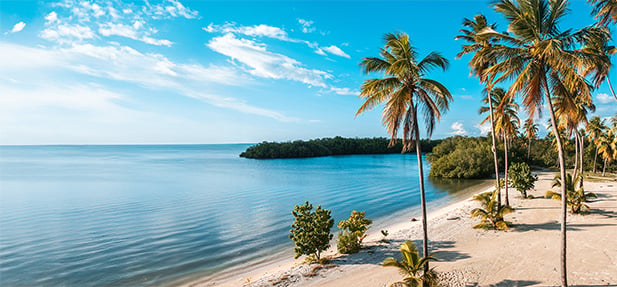
Mediterranean Attitude
The identity of the Region of Valencia is characterized by hospitality deeply rooted in its DNA. The Region constantly works to provide a sustainable and responsible tourist experience, encouraging visitors to actively participate in this initiative. By choosing us, tourists become key contributors to making the Valencian Community recognized as one of the most sustainable destinations to enjoy holidays.
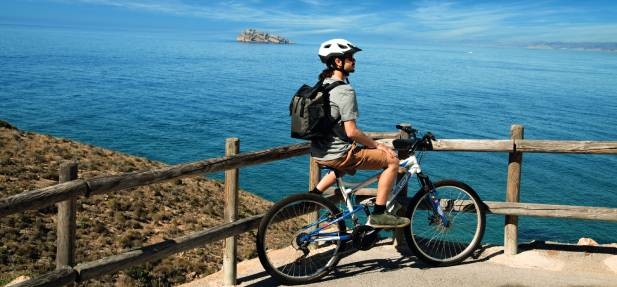
Choose your experience
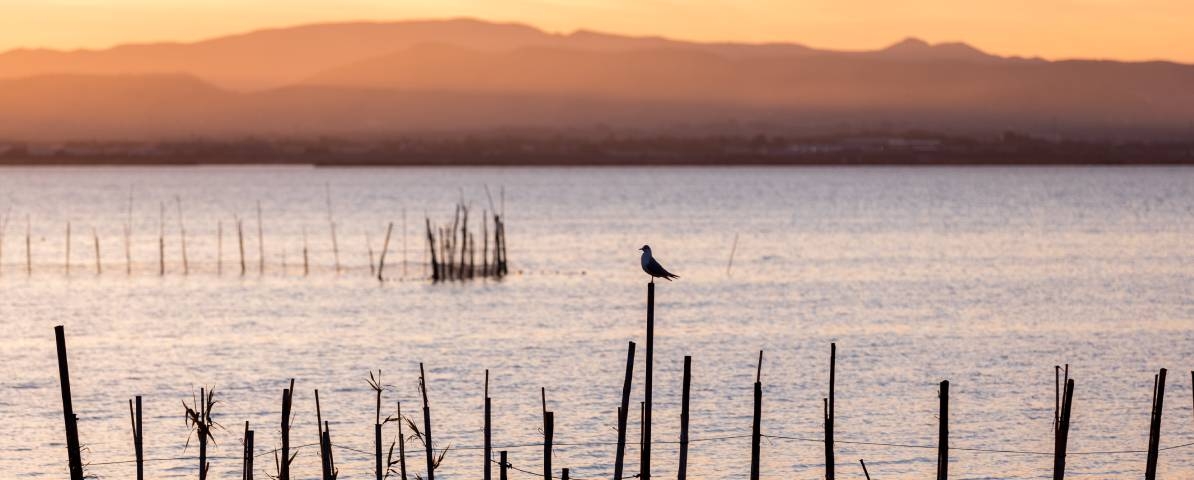
Birdwatching
A unique experience in Mediterranean ecosystems
Birdwatching in the Region of Valencia offers an exciting experience to enjoy its rich biodiversity, thanks to the natural spaces that attract various bird species. From majestic eagles in the Sierra de Espadán to colorful birds in the wetlands of Castellón. Notable places include the Albufera Natural Park in Valencia and the Marine Reserve of the Columbretes Islands in Castellón, as well as Montgó and the Hondo Natural Park in Alicante, which provide unique opportunities to spot diverse birds. Beyond contemplation, these experiences offer the possibility to immerse oneself in nature and learn about regional diversity.
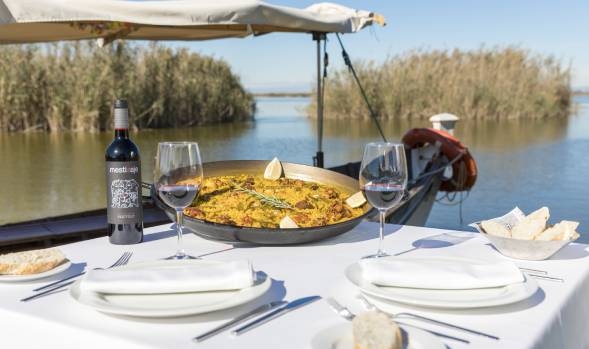
Gastronomy with Local Products
Delight your taste buds
The gastronomy presents itself as a feast of authentic flavors, respectful of the land and the sea, and economically sustainable for farmers. Additionally, the Valencian Community is a land of wines with renowned Designations of Origin such as DO Valencia, DO Utiel-Requena, or DO Alicante, committed to sustainable practices.
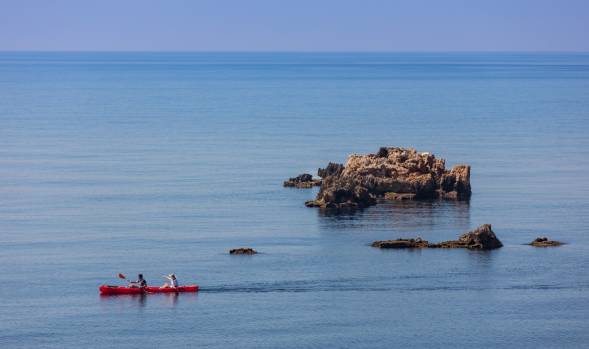
Sun 320 days a year
Ideal destination for sports enthusiasts
Crystal-clear waters of the Mediterranean, a warm climate, and a wide range of eco-friendly leisure options make the Region of Valencia the ideal destination for environmentally and socially sustainable holidays all year round.
Certified Sustainable Tourism Destination.
Morocco is a sustainable destination thanks to its ecological and cultural diversity. The country promotes responsible tourism through governmental policies that encourage environmentally friendly practices. The preservation of rich cultural heritage, supported by entities like the Mohammed V Foundation, and the involvement of local communities contribute to its appeal. By developing appropriate infrastructure and engaging residents, Morocco strives to combine tourist development with environmental respect.
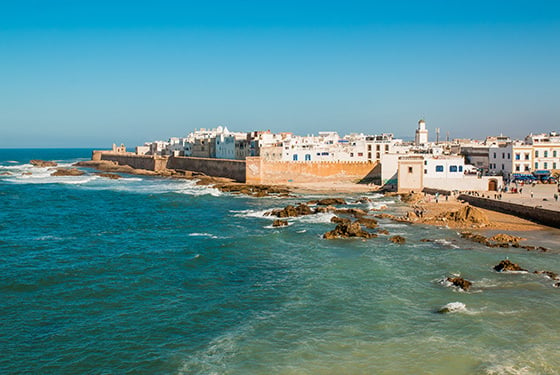
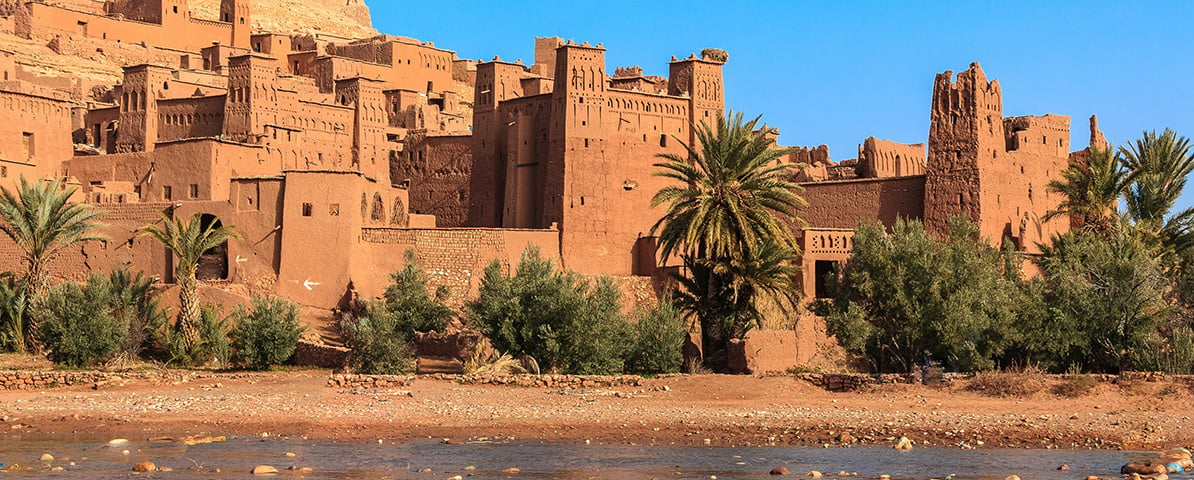
Ait Ben Haddou.
Ait Ben Haddou, an architectural treasure, classified by UNESCO.
Ait Ben Haddou, a site inscribed on the UNESCO World Heritage list, embodies Morocco's traditional adobe architecture. Located between Marrakech and the Sahara, its ancient kasbahs and earthen houses offer a unique testament to Moroccan craftsmanship and history. This fortified citadel, not only beautiful but also used as a backdrop in numerous films, attracts visitors for its exceptional cultural and architectural heritage, offering a fascinating immersion into Morocco's glorious past.
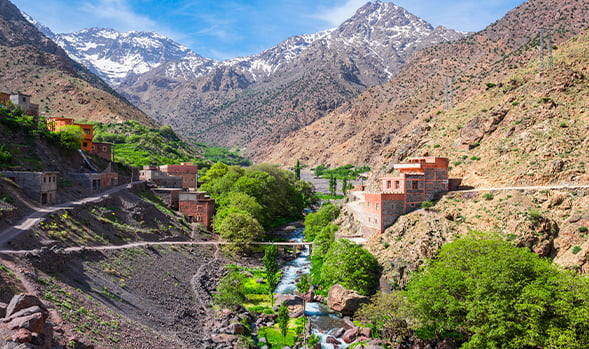
Toubkal National Park
For nature lovers
The Toubkal National Park, in the Atlas Mountains of Morocco, is the largest in the country. It is home to Mount Toubkal, the highest peak in North Africa, and remarkable biodiversity with endemic species. This park offers spectacular landscapes and is highly appreciated by nature lovers for its hiking opportunities and preserved natural beauty.

The desert, a must-see
An environmentally friendly visit
Morocco is home to preserved desert areas with a unique ecosystem, such as the Erg Chebbi National Park and the Khnifissr Oasis National Park. These parks aim to preserve the fauna, flora, and fragile desert ecosystems while allowing visitors to appreciate the beauty and diversity of these regions.
Morocco wonders
Morocco wonders
Panama's rich culture and biodiversity
A visit to Panamá will put you up close and personal with some of the most beautiful natural environments in the world, including 3 UNESCO World Heritage Sites, 3 natural and 2 cultural. Aside from the rich history of the land, in fact, Panamá is home to 7 different thriving indigenous communities. Its dedication to research and conservation through Smithsonian and other organizations allows Panamá to preserve such a rich culture and biodiversity. Make sure to visit one or all the World Heritage sites during your next trip!

Check out these UNESCO sites:

Panama Viejo
The remaining parts of the original Panama City
This settlement dates back to 1519, when Pedro Arias Dávila and 100 other inhabitants made it their home. The area now known as Panama Viejo was the first permanent European settlement on the Pacific Ocean. When you get there, explore the archeological site of Panama Viejo to see the Old Panama Cathedral, as well as various historical ruins. Next, climb atop the iconic bell tower and look at the Panama City skyline from the city’s original “skyscraper". While you’re there, take some time to shop at the artisan market, where you can pick up local crafts and souvenirs.

Fort San Lorenzo - Portobelo
An extraordinary example of 17th and 18th century military architecture
You’ll get to walk through the same dark, musty hallways of the colonial era, and view the heavy cannons nestled behind the walls. Take in the stunning views of the Chagres River, and on out to the Caribbean Sea. The historical area is not only great for exploration and introspection, but it’s also an excellent place for birdwatching.

Coiba National Park
A marine reserve located in the Gulf of Chiriquí
Coiba is a world-class diving destination offering access to Bahia Damas Reef. Not into diving? You can experience the local wildlife in a whale watching tour, or a hike through the rainforest. Look out for over 147 bird species, as well as monkeys, crocodiles and iguanas. And, if surfing’s your thing, you’ve come to the right place.
Feel the Caribbean Rhythm
One of the highlights of visiting the Colon province is the Caribbean towns, like Portobelo and La Guaira. Visitors here will savor the vibrant, boisterous Caribbean flair, the rich food culture, the traditional Calypso music, and the traditional Congo dances, declared Intangible Heritage of Humanity by UNESCO. Immerse yourself in the African legacy at the Casa de la Cultura Congo which provides information workshops and the creation of stunning arts and crafts.

Certified as a Sustainable Tourism Destination
Madeira's Tourism Strategy 2022-2027 has set the path to be more sustainable on 6 strategic pillars:
- Nature, Active & Sport Tourism
- Health and Wellness
- Sea and Nautical Tourism
- Lifestyle & New Trends
- Consciousness & Sustainability
- Cultural Heritage, Gastronomy & Wine
Discover every single aspect of it in an amazing tour of the Island

Madeira, one of a kind...

Nature Seekers
A tour into protected areas
Nature is the greatest and most important treasure of this Atlantic archipelago. Be sure to explore its lush beauty and its protected areas. With a valuable natural heritage, the archipelago of Madeira has made preservation a priority, with a large part of its territory protected under different classifications.

Food & Wine Enthusiasts
Discover Madeira's unmistakable flavours
The subtropical climate of the archipelago, as well as its fertile volcanic soils, provide Madeira's gastronomy with genuine and unmistakable flavours. Likewise, the immense richness of the clear seas of this region provide ingredients of a superb standard of quality. Discover Madeira's gastronomic delicacies and indulge your senses!

Beaches in Madeira
A large variety for all tastes
With golden, coppery or black sand, natural or imported, the sand beaches of Madeira are ideal places to relax and dive into the warm Atlantic waters. Discover their charms.